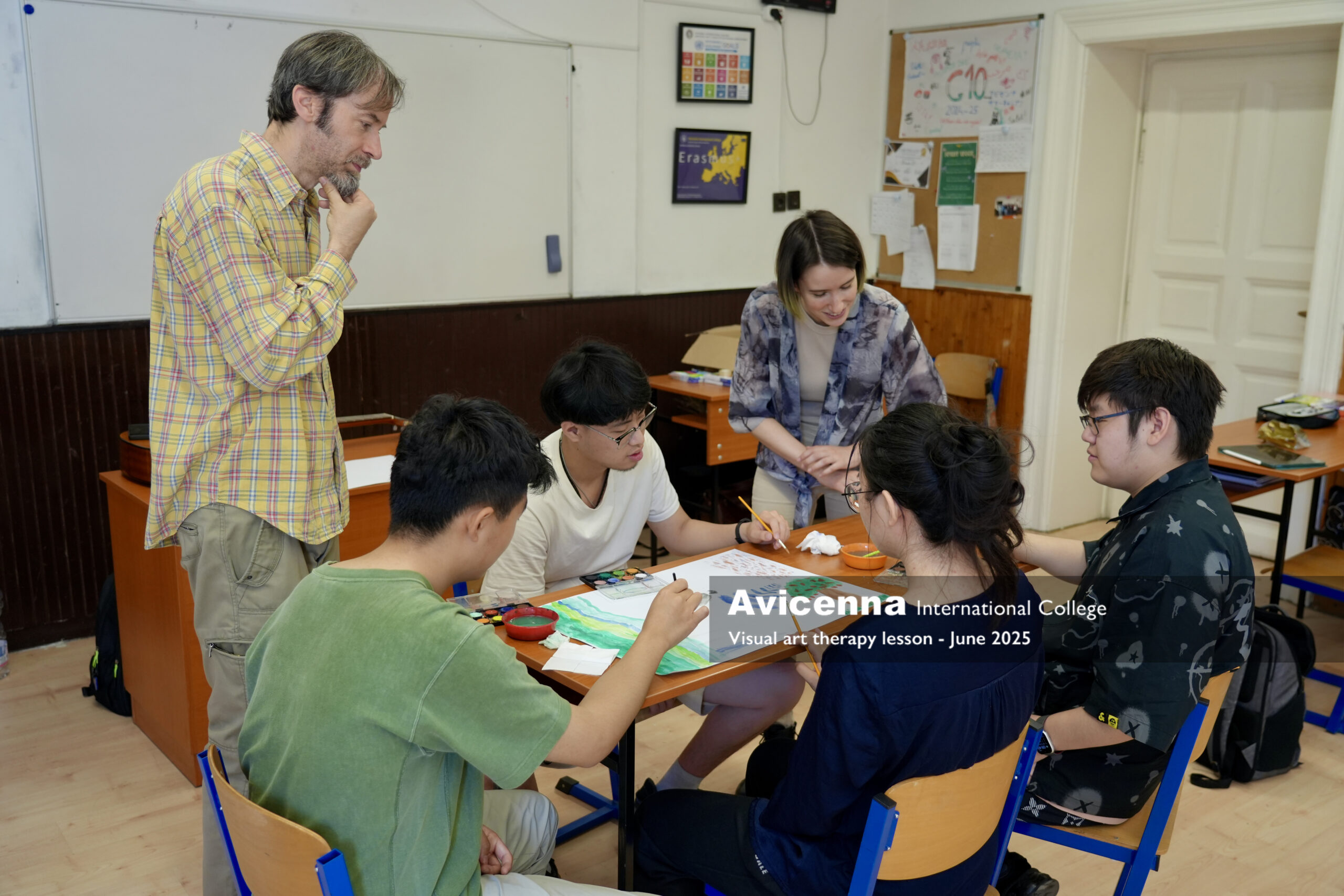
In recent years, the significance of mental health and emotional well-being has become increasingly apparent within educational environments. Recognizing this, Avicenna International College in Hungary has taken a progressive step by introducing dedicated lessons focused on Music Therapy and Art Therapy. These disciplines are not only vital for fostering student well-being but also have broader implications for mental health practices across Europe and beyond.
Enhancing Student Well-being through Music and Art Therapy at AIC
At the core of these innovative lessons is the understanding that creative expression plays a crucial role in emotional health. In a world where students face various academic, social, and personal challenges, providing avenues for self-expression can significantly improve their mental resilience and overall well-being.
Avicenna International College (AIC) in Hungary, renowned for its comprehensive educational offerings, recognizes the importance of integrating therapeutic arts into its curriculum. This initiative aims to help students develop coping skills, boost self-confidence, and explore their identities through engaging, practical activities.
The Role of Music and Art Therapy in Education
Supporting Emotional Expression and Self-awareness
Music and art therapy utilize creative processes—such as painting, singing, dancing, or composing—to help individuals access and process their emotions. For students, these methods can act as powerful tools for self-awareness, enabling them to articulate feelings that might be difficult to express verbally. Such activities cultivate empathy, patience, and emotional intelligence, essential qualities for personal and professional development.
Benefits for Neurodivergent and Trauma-affected Students
Research demonstrates that music and art therapy are particularly effective for neurodivergent individuals, children exposed to trauma, and elderly populations with conditions like Alzheimer’s or dementia. These therapies provide non-verbal communication channels, making emotional release and understanding more accessible. Incorporating these practices in higher education fosters inclusivity and mental health support for diverse student groups.
Curriculum Highlights at Avicenna International College
The latest introduction of music and art therapy lessons at AIC has featured interactive classes designed to encourage open expression and experimentation. For example:
- Creative lyric writing: Students collaborate to craft lyrics and perform them with guitar accompaniment, emphasizing vulnerability and teamwork.
- Emotional poetry interpretation: Students depict feelings through reading, movement, or visual representation, exploring various emotional states like happiness, sadness, and anger.
- Expressive painting sessions: Participants use watercolors or mixed media to illustrate personal stories or abstract feelings inspired by music.
Such exercises demonstrate how blending different art forms can facilitate emotional processing and foster a supportive classroom environment.
Practical Applications and Future Outlook
Implementing music and art therapy within higher education has practical implications for student support services, mental health initiatives, and holistic education. The skills learned through these courses can be applied in various professions, including healthcare, social work, and community development.
Avicenna International College’s commitment to integrating therapeutic arts reflects a broader European trend toward comprehensive educational models that prioritize mental health. Through partnerships and continuous curriculum development, AIC aims to serve as a pioneer in this field, preparing students not only academically but also emotionally for their future careers.
Getting Involved: How Students Can Benefit from These Programs
If you are considering studying at Avicenna International College, the inclusion of music and art therapy lessons enhances the student experience by offering diverse avenues for personal growth. Students can:
- Participate in hands-on creative activities that promote well-being.
- Develop skills in emotional self-regulation and resilience.
- Gain exposure to interdisciplinary approaches combining arts and therapy.
- Prepare for careers where mental health awareness and creative skills are valued.
Explore Further Opportunities at Avicenna International College
To learn more about studying in Hungary and the comprehensive programs offered at AIC, visit their official website. The college also provides resources such as Erasmus+ exchange programs, scholarships, and distance learning options for a flexible educational experience.
Conclusion: A Step Toward Holistic Education
By integrating music and art therapy into its curriculum, Avicenna International College in Hungary demonstrates a pioneering approach to education—one that values emotional health as much as academic achievement. These lessons not only equip students with practical skills for personal development but also contribute to a more inclusive, supportive learning environment. For prospective students and educators alike, embracing such innovative practices represents a significant step toward fostering resilient, empathetic individuals ready to face the challenges of the modern world.
If you are interested in expanding your educational horizon and engaging in a supportive, creative learning environment, consider exploring what Avicenna International College offers. The integration of therapeutic arts into higher education continues to grow, shaping the future of student well-being and professional readiness across Europe and beyond.
Discover if a program combining academic excellence and emotional well-being is right for you by visiting their website today.

